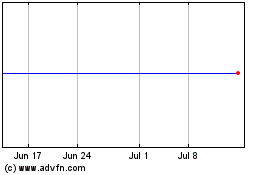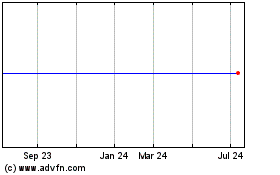UPDATE: Marriott's Quarterly Profit Boosted By Overseas Markets and Corporate Travelers
July 13 2011 - 7:20PM
Dow Jones News
Anemic job growth and a sputtering economy haven't stopped the
nation's largest hotels from booking guests.
Marriott International Inc. (MAR), which operates Courtyard,
Residence Inn, Ritz-Carlton and its namesake hotels among others,
said Wednesday its second-quarter earnings climbed 13% on strong
growth abroad, while the U.S. market benefited from demand from
business travelers. Marriott kicked off the earnings season for
hotel operators and its results bode well for Starwood Hotels &
Resorts Worldwide Inc. (HOT) and Host Hotels & Resorts (HST)
reporting later this month.
Marriott said revenue per available room--a key industry metric
known as revpar--grew 7.7% in the second quarter, within range of
the company's April prediction of 6% to 8%. International revpar
increased 12% in actual dollars, while North American revpar rose
6.6%.
Marriott's strong revpar numbers overseas are a positive sign
for Starwood, which has a large part of its business in Asia and
Europe, says C. Patrick Scholes, an analyst at FBR Capital Markets
& Co. Inc.
Indeed, Starwood's revenue is expected to jump 10% to $1.4
billion, with earnings per share coming in at 46 cents compared to
35 cents a year ago, according to analysts polled by Thomson
Reuters.
The slow economy and poor jobs market usually forces cutbacks in
corporate and leisure travel, which is why hotels were so
brutalized during the recession. But Marriott says an uptick in
business travel has helped counteract negative economic trends.
"The good news is we don't have new supply coming into the
market and we continue to see strong corporate (business) which
insulates us a little bit," Laura Paugh, senior vice president of
investor relations for Marriott, said in an interview.
Paugh noted that bookings from individual business travelers
jumped 7% in the second quarter.
David Loeb, an analyst at Robert W. Baird, noted that higher-end
and luxury hotels that cater to business travelers are doing well
because corporate profits are up. Most of the heavy job losses in
the country are in lower-wage sectors like manufacturing and
construction, and these workers don't usually drive demand for the
big publicly traded hotel operators, Loeb added.
Marriott reported second-quarter earnings of $135 million, or 37
cents a share, up from $119 million, or 31 cents a share, a year
earlier. In April, the company projected earnings of 34 cents to 38
cents, narrowly missing analysts expectations at the time.
Revenue climbed 7.3% to $2.97 billion. Analysts expected $3.02
billion.
Looking ahead, the company predicted third-quarter earnings of
25 cents to 29 cents a share and worldwide revpar growth between 6%
and 8%, excluding the Middle East and Japan markets. Including
those regions, Marriott estimated revpar could be slightly lower.
Wall Street projected a profit of 30 cents per share.
For the year, Marriott trimmed the top end of its
earnings-per-share forecast range by 2 cents from its April
estimate. The company now expects income of $1.35 to $1.43 per
share. The company still expects revpar growth from 6% to 8%
excluding the Middle East and Japanese markets.
(John Kell contributed to this report.)
Host Hotels and Resorts (NYSE:HST)
Historical Stock Chart
From May 2024 to Jun 2024

Host Hotels and Resorts (NYSE:HST)
Historical Stock Chart
From Jun 2023 to Jun 2024
